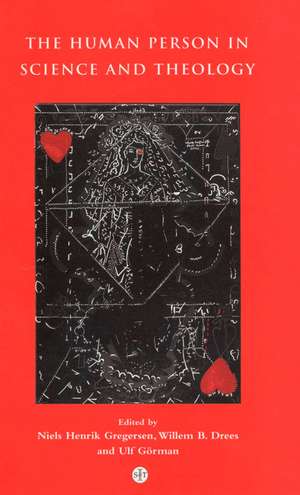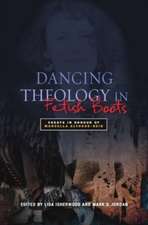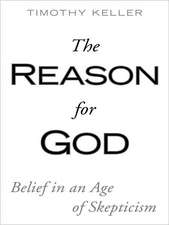Human Person in Science and Theology
Editat de Niels Henrik Gregersen, Willem Drees, Ulf Görmanen Limba Engleză Paperback – 29 feb 2000
Preț: 463.47 lei
Preț vechi: 520.75 lei
-11% Nou
Puncte Express: 695
Preț estimativ în valută:
88.71€ • 96.39$ • 74.57£
88.71€ • 96.39$ • 74.57£
Carte tipărită la comandă
Livrare economică 22 aprilie-06 mai
Preluare comenzi: 021 569.72.76
Specificații
ISBN-13: 9780567086921
ISBN-10: 0567086925
Pagini: 232
Dimensiuni: 138 x 216 x 12 mm
Greutate: 0.28 kg
Editura: Bloomsbury Publishing
Colecția T&T Clark
Locul publicării:London, United Kingdom
ISBN-10: 0567086925
Pagini: 232
Dimensiuni: 138 x 216 x 12 mm
Greutate: 0.28 kg
Editura: Bloomsbury Publishing
Colecția T&T Clark
Locul publicării:London, United Kingdom
Recenzii
"The present collection shows the richness of the debate on the biocultural paradigm of the embodied, relational being of the human person. It is a debate characterised by great openness, intellectual toughness, and imagination." --Interdisciplinary Science Review 27.1 (2002)
"There is probably no more contentious a subject matter today than the seminal question as to what constitutes and makes each of us a person . . . This book does not offer a watertight definition to what is one of our most complex and far-reaching debates. Such a goal is beyond the scope of this book. What it will do, however, is show that the different disciplines have much to learn from each other as well as richly resource the theologian, scientist and psychologist in what is rapidly becoming one of the most problematic issues in the 21st century." --Science & Christian Belief 14.1 (April 2002)
"There is probably no more contentious a subject matter today than the seminal question as to what constitutes and makes each of us a person . . . This book does not offer a watertight definition to what is one of our most complex and far-reaching debates. Such a goal is beyond the scope of this book. What it will do, however, is show that the different disciplines have much to learn from each other as well as richly resource the theologian, scientist and psychologist in what is rapidly becoming one of the most problematic issues in the 21st century." --Science & Christian Belief 14.1 (April 2002)








